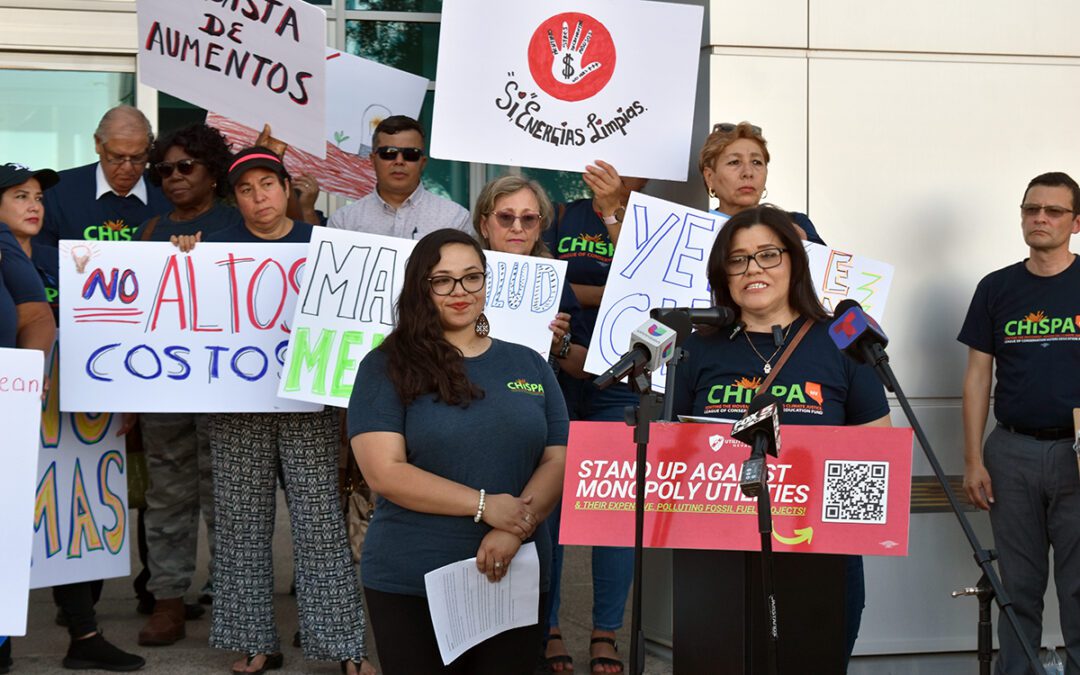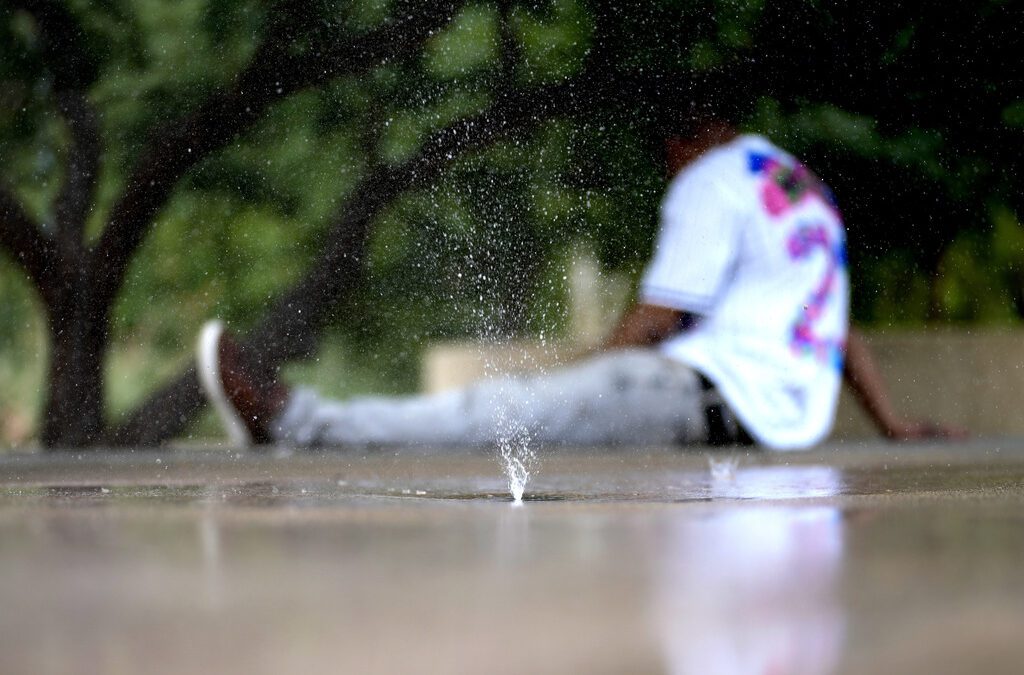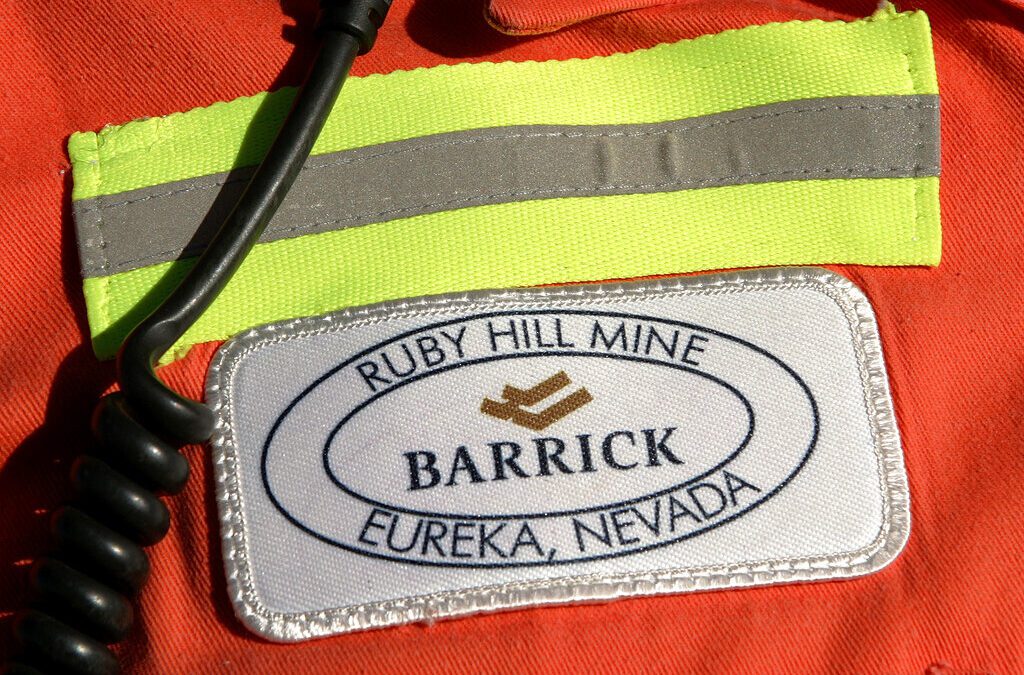
This Feb. 26, 2021, file photo shows an oil well east of Casper, Wyo. The Biden administration is raising royalty rates that companies must pay for oil and natural gas extracted from federal lands as it moves forward under court order with sales of public fossil fuel reserves in nine states. (AP Photo/Mead Gruver, File)
Swaths of public land with little or no value for oil or natural gas leasing can now be reprioritized for wildlife habitat preservation and recreation.
The Biden administration on Friday announced new rules that will require oil and gas companies to pay more to drill on federal lands and cover the cost of cleaning up older wells—provisions pushed for by Nevada US Sen. Catherine Cortez Masto.
Starting in June, the Bureau of Land Management (BLM) will allow federal public lands with low or no potential for oil or natural gas extraction to be reprioritized for wildlife habitat preservation, grazing, outdoor recreation, and other uses, Cortez Masto, a Democrat, said in a news release Friday.
The Senator said despite the win, she’ll continue to push for passage of a bill she authored that would codify the new rule into law so it can’t be undone by a future administration’s rule change.
“I’m glad to see the administration heed my calls to safeguard Nevada’s public lands that have little to no potential for oil and gas development,” Cortez Masto said in the release. “This commonsense rule will ensure we are prioritizing lands that are actually suitable for development, instead of wasting time on money and speculative leasing.”
The new rule from the Interior Department, which controls the BLM, also raises royalty rates for oil drilling to 16.7%, up from the previous rate of 12.5% that had remained unchanged for more than a century, according to the Associated Press. The hike complies with a provision of the Inflation Reduction Act, which was signed by President Joe Biden in 2022 and makes the federal rate more in-line with what states and private landowners charge for drilling leases.
MORE: Sens. Jacky Rosen, Cortez Masto join efforts against Big Oil consolidation
The rule, however, does not prohibit new oil and gas leasing on federal lands, but officials said the rule change will lead to a more responsible leasing process that is more beneficial for US taxpayers and focuses drilling in areas most likely to be developed.
The AP reports the rule also incorporates provisions in the 2021 bipartisan infrastructure law and recommendations from an Interior Department report on oil and gas leasing issued in 2021. That report recommended an overhaul of the oil and gas program to limit areas available for energy development and raise costs for oil and gas companies to drill on public lands and waters.
“These are the most significant reforms to the federal oil and gas leasing program in decades, and they will cut wasteful speculation, increase returns for the public and protect taxpayers from being saddled with the costs of environmental cleanups,” Interior Secretary Deb Haaland said Friday.
Along with efforts to clean up so-called orphaned, or abandoned, wells, “these reforms will help safeguard the health of our public lands and nearby communities for generations to come,” Haaland said. The rule also will ease pressure to develop areas that contain sensitive wildlife habitat, cultural resources, or recreation sites, she said.
The American Petroleum Institute, the oil industry’s top lobbying group, said it was reviewing the rule to ensure Biden’s Democratic administration was encouraging “fair and consistent access to federal resources” used by oil and gas companies.
Some environmental groups celebrated the decision, while others, like the Center for Biological Diversity, which is based in Arizona but does work in Nevada, said the Biden administration could have done more.
“For far too long, oil and gas companies have been profiting off of giveaways to drill on our public lands,” Josh Acelrod, senior policy advocate for the Natural Resources Defense Council said in a statement Friday. “Communities conservationists, and taxpayer advocates have been demanding many of these changes for decades, and it’s great news that the Biden administration is acting on this today.”
But Gladys Delgadillo, with the Center for Biological Diversity, told the AP the group was disappointed to learn the announcement wouldn’t phase out drilling on public lands altogether.
“Updating oil and gas rules for federal lands without setting a timeline for phaseout is climate denial, pure and simple,” Delgadillo said. “Public lands should be places for people to enjoy nature and wildlife to roam free, not hotspots for toxic pollution.”
The change in bonding rates is a key element of the new rule, officials said. The previous rate of $10,000, established in 1960, was far too low to force companies to clean up old drilling sites and did not cover potential costs to reclaim a well, officials said.
As a result, taxpayers frequently end up covering cleanup costs for abandoned or depleted wells if an operator refuses to do so or declares bankruptcy. Hundreds of thousands of orphaned oil and gas wells and abandoned coal and hardrock mines pose serious safety hazards, while causing ongoing environmental damage.
The Interior Department has made available more than $1 billion in the past two years from the infrastructure law to clean up orphaned oil and gas wells on public lands. The new rule aims to prevent that burden from falling on taxpayers in the future.
BLM Director Tracy Stone-Manning, whose agency issued the new rule, said it “will help protect critical wildlife habitat, cultural resources and recreational values’’ while ensuring a fair return for taxpayers. The bureau manages more than 245 million acres of public lands, mainly in the West, including most of the public land within Nevada’s borders which accounts for roughly 80% of the state’s land.
The Associated Press contributed to this report.

Condena Chispa Nevada el retiro de apoyo en su pago de electricidad a familias de bajos ingresos
Chispa Nevada condena que la administración Trump retire ilegalmente el financiamiento del programa de Nevada para reducir las facturas de...

Biden admin moves to shield Nevada public lands from mining with support of tribes, local leaders
In one of President Biden’s last moves in office, his administration has moved to protect 269,000 acres of public land in Nevada from a proposed...

Many fear help for Nevada water conservation will dry up under Trump
Despite billions from the Inflation Reduction Act going to benefit Nevada, President-elect Donald Trump and conservative fiscal hawks may pursue a...

Grant from Biden infrastructure law to help install 185 EV charges around Las Vegas valley
A $3.2 million grant from the US Department of Transportation will help fund and install electric vehicle charging stations in primarily...

Almost 500 people have died from extreme heat in Las Vegas in 2024, officials say
Factors relating to extreme heat accounted for 491 deaths and more than 3,500 emergency room visits, according to Clark County officials, as Las...

Nevada gold mining venture selected for $95M solar project
After being awarded a federal grant to help decarbonize the mining industry, Nevada Gold Mines hopes to build two on-site solar panel and battery...





